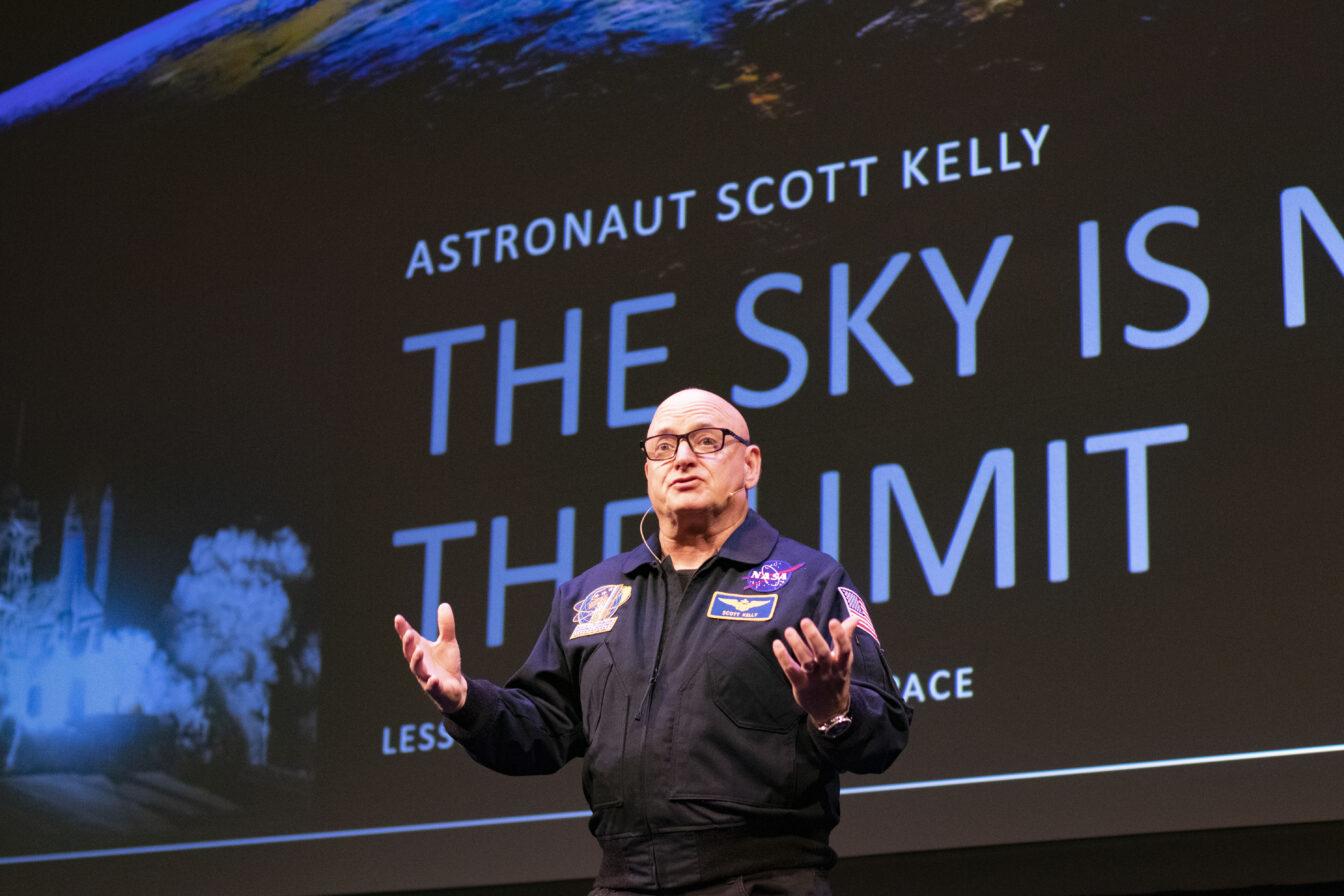Former NASA astronaut Scott Kelly gave a lecture and Q&A session to University of Wisconsin students and Madison community members Tuesday.
The Wisconsin Union Directorate’s distinguished lecture series hosted the event in Memorial Union’s Shannon Hall. Kelly is a former U.S. Navy test pilot turned astronaut who took part in four space missions from 1996 to 2016, according to NASA.
Kelly’s last mission lasted 340 days and was known across the world as the “year in space,” according to the WUD.
Perfectly imperfect machines: How artificial intelligence algorithms produce biased decisions
After graduating college with an engineering degree, Kelly attended Navy flight school. Following three years in a fighter squadron, the Navy selected Kelly for test pilot school, Kelly said. He then applied to be an astronaut, thinking he had little chance of being selected, and landed an interview shortly after his twin brother Mark Kelly.
“I knew [the application] was going to be rejected. No doubt in my mind, but you know, what’s the risk?” Kelly said.
After Kelly finished his third mission — a six month stay on the international space station — NASA was interested in sending two people to space for a longer duration. NASA selected Kelly to go on a 340 day mission to the ISS along with Russian cosmonaut Mikhail Kornienko, Kelly said.
The reason for the mission was to study how humans respond to long space flight. Space wreaks havoc on the human body and NASA wanted to understand those effects in order to prepare for possible long duration flights in the future, Kelly said.
“When we’re in space for a long time, bad things happen to our physiology,” Kelly said. “We evolved with gravity. Gravity is very important to how our physiological system functions.”
UW researchers earn NSF grant to create inclusive health communication strategies
While up in space, Kelly helped conduct scientific experiments and enjoyed working with the lab mice. But Kelly was a lab rat himself. Since he had an identical twin back on earth with the same DNA, scientists could compare the two brothers to understand how long space missions affect the body, Kelly said.
Scientists summarized their findings in a 2019 study, and found that telomeres, the repetitive DNA at the ends of chromosomes that prevent DNA damage, lengthened during the mission and shortened quickly afterward.
On Earth, telomeres generally shorten because of age and other environmental factors. Scientists also observed changes in gene expression, microbiome composition and eyesight. Kelly said he attributes a distance correction in his eyesight to his time in space.
Given the nature of the study, the Kelly brothers had to contend with how much information they wanted available to the public. After consulting their children, Kelly said both brothers decided to move forward with the study for the sake of the science.


















